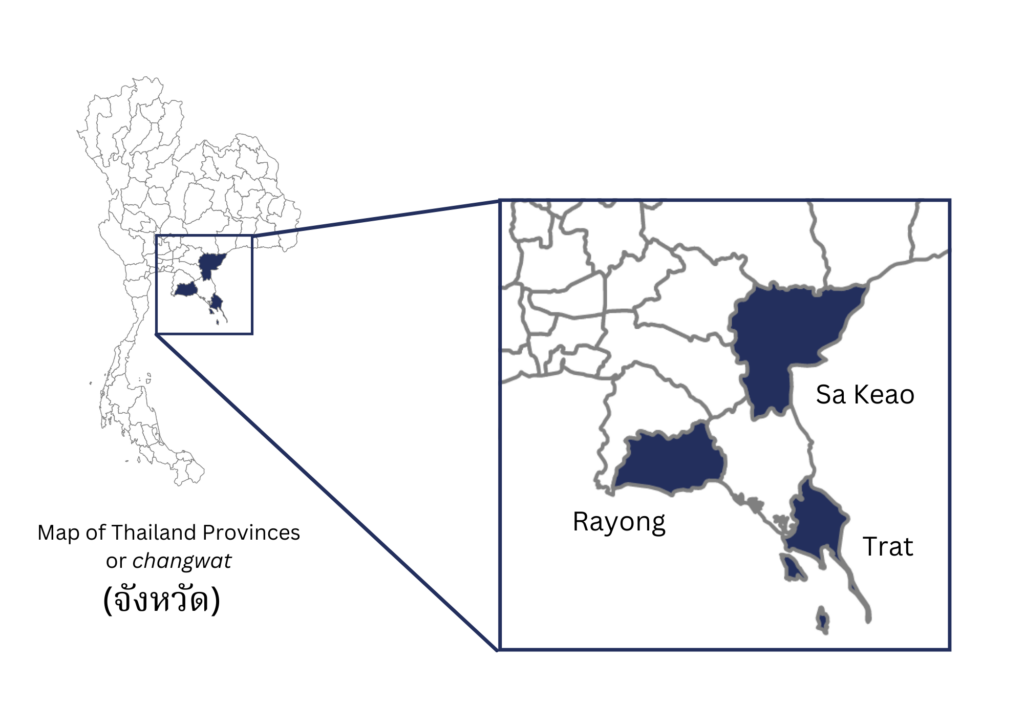In the greater Mekong sub-region, the proliferation of Special Economic Zones (SEZs) has served to promote the growth of economic corridors, generate jobs, and attract foreign direct investment.
While these zones offer privileges to investors and special conditions for businesses, they are often coupled with lower labour protections, and therefore risks of abuse and exploitation.
In Thailand, there are close to 2.5 million documented migrant workers - with an unknown number of foreign workers without documentation in Thailand - and with SEZs often strategically located near border areas, the potential for exploitation of migrant workers is compounded in these areas.
Through a partnership with ASEAN-ACT, the Labour Protection Network Foundation (LPN) conducted a study of migrant workers in SEZs in Thailand to assess the vulnerability of workers to abuse and exploitation. The study contributes to the evidence base and policy recommendations targeted to local government and employers for the better protection and welfare of workers living and working in these zones.
LPN’s study analysed the laws, regulations, policies and practices in Thailand, as well as the impact of COVID-19 on protection and support mechanisms for migrant workers.

Data and case studies were collected in three provinces in Thailand - Sa Keao, Trat and Rayong – all provinces with a high proportion of migrant workers. In these provinces, researchers spoke with over 180 migrant workers – the majority from Cambodia and Myanmar – whose wages ranged from 200 to 300 baht per day working in sectors key to Thailand’s economy including agriculture, fishing, and tourism. Migrant workers stated that they incurred several expenses during their migration journey, many arrived at their work locations with significant debts incurred that were then deducted from their salaries. And several workers reported that their employers had withheld their personal documents – a potential indicator of forced labour. Others shared experiences of strenuous working hours and conditions related to work-related injuries. Almost all earnt below the minimum wage of 328 baht per day.
The study found that the migrant workers interviewed in these provinces experienced abuse and harsh conditions in their workplaces, relating to extreme working hours and conditions, costly work and border permits, limited access to medical services, and work suspensions or reduced income due to the pandemic.
Migrant workers often come to Thailand with their families, and their dependents, mostly minors, are also vulnerable to abuse and exploitation. Children are particularly vulnerable to being exploited as beggars or workers in the informal economy. Child protection procedures and access to education are important for safeguarding the rights of these dependents. LPN’s study also highlighted that protection should be extended to migrant workers’ families, as they too contribute to Thailand’s economic and social development.
Government and non-government agencies, particularly at the local level, play a critical role in minimising the risks associated with working in SEZs in Thailand. Extending and enhancing social protection and ensuring that the rights of migrant workers and their families are protected will significantly reduce the risk of abuse and exploitation.
This research will inform LPN’s advocacy and coalition building between government agencies, businesses, NGOs, and migrant workers towards greater migrant worker protection in Thailand.
---
Learn more about ASEAN-ACT’s partnership with LPN: